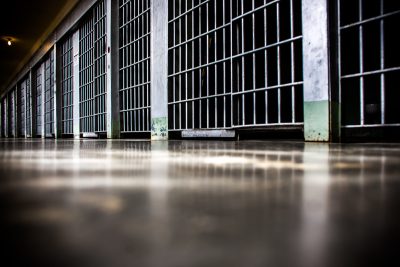The Massachusetts Department of Correction has a history of inadequate health care in its correctional facilities.

A Jan. 9, 2020 audit found the DOC did not always provide requested health care services to inmates within the required time periods or proper reentry planning from July 2016 to June 2018.
In a District of Massachusetts court case decided on July 31, 2019, it was ruled that inmate Timothy Reaves be transferred to a non-DOC facility to receive proper care for his injuries.
Reaves, who has quadriplegia, severe hearing loss and complications from a traumatic brain injury, reported inadequate care from the DOC, according to the ruling.
His dietary needs were not met, leading to malnourishment, he received improper motion therapy and he had fungal infections in his fingernail and toenails because no one assisted him with cutting them, among other incidents.
People in prisons have a constitutional right to health care because of the Eighth Amendment, which protects against cruel and unusual punishment. Boston University professor of health law, ethics and human rights Michael Grodin said people in prisons have been treated “inappropriately” and “ineffectively.”
“We took away their liberty,” he said. “The Supreme Court has held that prisoners have a right to adequate medical care.”
Michael Horrell, a staff attorney at Prisoners’ Legal Services of Massachusetts — an organization focused on protecting civil rights of people in prisons — said the pandemic has worsened the quality of health care in the state’s correctional facilities, which has “never been great.”
“Access to health care is consistently a problem in these facilities,” he said. “It’s been greatly exacerbated by COVID, where things like routine outside hospital trips or trips to see providers for chronic conditions outside the prison have been suspended or delayed.”
Horrell said to combat the spread of COVID-19 in prisons and jails, the state should decarcerate its facilities — around half of DOC prisoners live in a multi-person cell. Decarceration would allow prisoners to socially distance more effectively, he said.
PLS has an ongoing class action lawsuit against the State’s executive branch for its handling of COVID-19 in prisons and is advocating for the DOC to release more people from prisons. The organization also plans on pushing for decarceration in its lawsuit, Horrell said.
“There’s always room for improvement in terms of things like sanitation and [personal protective equipment] and quarantining and isolation and testing,” he said. “I think the sort of fundamental structural issue is decarceration and that’s an avenue that they just have not been willing to consider, unfortunately.”
Out of 6,500 people in Massachusetts prisons and jails, more than 3,000 have COVID-19, according to DOC data published by the American Civil Liberties Union Massachusetts.
“We’re getting close to half of the population having been affected,” Horrell said. “It’s just dramatically above the spread that we’ve seen in the wider community.”
Face coverings must be worn by inmates, faculty and staff inside of Massachusetts correctional facilities. More than 2.5 million masks, hand sanitizer, gloves, and other PPE materials have been delivered to correctional facilities by the DOC since March 2020, according to a DOC spokesperson.
Inmates were included in Phase One of the State’s vaccine rollout, and staff and prisoners began receiving their first dose of the vaccine Jan. 18 — nearly 14,000 shots have since been administered to inmates in state jails and prisons.
“The Department of Correction continues to take decisive measures to reduce opportunities for virus introduction and transmission, and our health and safety measures have always been based on the latest state and federal public health understanding of the virus,” Jason Dobson, deputy director of DOC communications, wrote in a statement.
David Tuttle, the superintendent for the Worcester County Sheriff’s Office, said his facility began preparations for the pandemic in February 2020, implementing medical isolations as people arrived and a rigorous cleaning schedule.
“We smelled like a YMCA swimming pool around here for months,” Tuttle said.
Garrett Nichols, director of communications at the Norfolk County Sheriff’s Office, said the facility is working to educate inmates on the vaccine rollout.
“All staff and inmates have access to the vaccine,” he said, “and we’re doing a really big educational push to really inform them of the importance of the vaccine.”
Horrell said the acceptance of the vaccine from inmates varies from institution to institution, and PLS has received some complaints from inmates about a lack of education or ability to ask questions regarding the vaccine.
Horrell said the “chronic failure” to provide people in prisons with the necessary health care is ongoing and harmful to incarcerated individuals.
“The state is obligated to preserve their health and safety, including protecting them from COVID,” he said. “I think unfortunately here in Massachusetts, they’ve largely failed and the people who are inside and the people who care about them [are] paying the price for it.”
CORRECTION: A previous version of this article misstated that more than 14,000 doses of the COVID-19 vaccine have been administered to prisoners in Massachusetts states and prions — nearly 14,000 doses have been administered. The article has been updated to reflect these changes.


















































































































